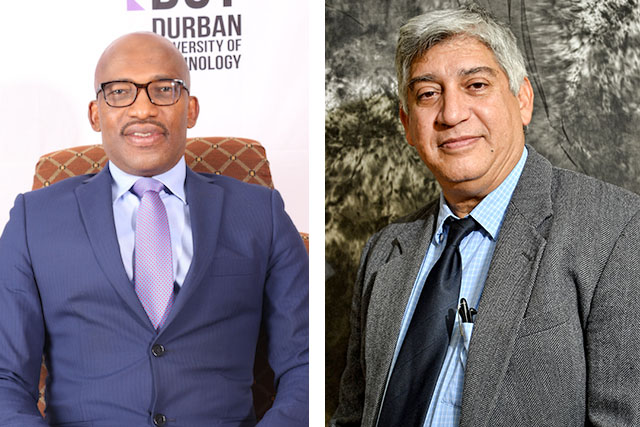There is a strong international consensus that universities are enormous resources for the construction and maintenance of societies that consider as paramount the social, political and economic wellbeing of their people, and that of the physical environment in which they live.
South Africa’s higher education system, with all its challenges, must be regarded as central to national development; building a globally competitive economy; deepening our democracy and culture of human rights; and building a more equitable society to bring to fruition a nonracist, nonsexist and socially just egalitarian society.
It is a small system that punches way above its weight and a number of internally focused metrics attest to this. Between 1994 and 2017 student numbers more than doubled from about 450 000 to more than a million. About 220 000 graduates were produced last year. In 2015 its research produced more than 22 000 publications and more than 2 700 doctorates. And South Africa has almost a 10% share of the top 10% of cited articles in the world. These are indications of a system that is highly productive.
It is also a system troubled with instability, underfunding and dysfunctional support systems, such as the National Student Financial Aid Scheme (Nsfas). Turnover in leadership is at extraordinarily high levels. And over the last two months, two of our vice-chancellors have been recruited internationally.
The instability in 2018 has been driven by Nsfas’ catastrophic failure to make progress in the timeous distribution of financial aid to students, the increasing challenge of the provision of student accommodation, and impactful, protracted strikes by academic and support staff for salaries that are unaffordable to the universities. The demands are for salary increases that are significantly above the inflation rate. With a gradual decline in the state subsidy, controlled tuition fee increases and a higher education price index that is larger than the consumer price index, these salary demands have the potential to irreparably damage the finances and sustainability of the universities. More often than not, staff strikes are organised apparently to throttle the fundamental cogs of the system – registrations, academic programmes and examinations – without which no university could sustain itself or even afford the salary increases being sought.
With the new student funding bursary programme announced in December last year, there is pressure being put on universities by the state to restrict tuition fee increases to the inflation rate. This is understandable. But it means that the annual revenue to universities will be further decreased which means that larger-than-inflation salary increases will be more and more damaging to their financial wellbeing and their ability to maintain and improve the quantity and quality of teaching, learning and research.
The R780m cost of damages to universities’ infrastructure as a result of instability between 2015 and 2017 is an astonishing figure. Yet, this is just a fraction of the total cost of managing the universities during these periods of upheaval and violence. Just one example is the hundreds of millions of rands committed every year to the need for additional security.
The most important cost, of course, is the human cost to members of staff and to students. At the most basic level there is vast disruption to the academic programme and its impact on success and throughput rates. The impact of disruptions to the research enterprise is costly, multilayered and even dangerous due to the nature of experiments being carried out. Perhaps the most important issue is that the academic process is fundamentally dependent on the nature of the trust relationship between student and academic, and if this is tampered with then the healing process could be a long, tedious one.
Each disruption, each strike, each sectoral or interest demand, each torching of a building cuts at the confidence that students and staff have in their university. The finances of our institutions, and some are much more vulnerable than others, are severely impacted on. Their capacity to make contributions to the large national projects is slowly but inexorably eroded.
With all of these challenges, most of which are beyond the system’s control, it is ultimately the university, at the least its reputation, that gets battered by its own students, staff, society and its organs, including the media. We are not calling here for faults in our system or leadership failures to be ignored. But, if that is done in a manner that does not further develop, but rather chips away at the university’s essence, we shall soon have no university left worth its name.
The question is: Do we, as a nation, think that the sustainability of our universities is important? If our answer is in the affirmative, then there is a need for universities and the public to agree on how we are to achieve this.
With all its limitations, the National Commission on Higher Education provided some sort of framework for a social compact between the higher education system and society. Perhaps it is time for another social compact that will allow all parties – universities, staff, students, parents, government, industry and business, and civil society – to arrive at a common understanding of what is expected of our universities and how we will achieve it.
If we miss the opportunity of arriving at some sort of working consensus on how we may develop stability at our universities, it is very likely that we shall see a gradual but definite erosion of a system of higher learning that is of great significance to South Africa and central to the project of constructing a society that fosters the flourishing of its people, has a deep sense of social justice, contributes to the global competitiveness of its economy and, most important, is compassionate to humanity.
– Mthembu is chairperson and Bawa is chief executive officer of Universities South Africa.
Professor Thandwa Mthembu and Professor Ahmed Bawa
Article source: https://www.news24.com/Columnists/GuestColumn/the-value-of-teaching-learning-and-research-20180817


